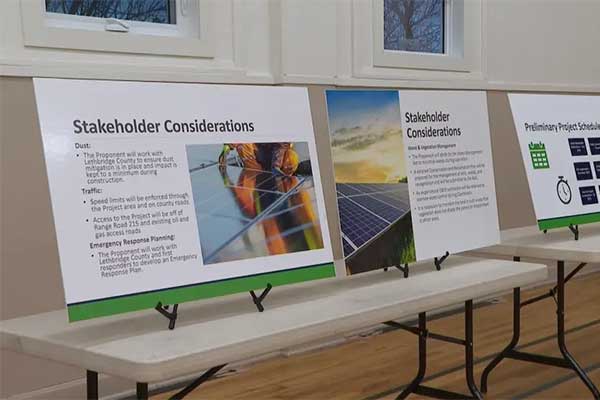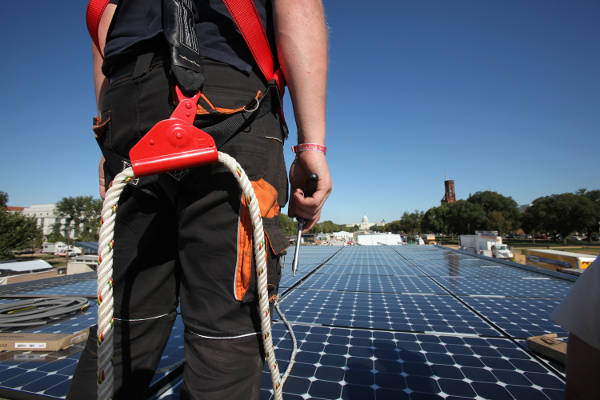- Lethbridge County in Alberta, Canada, faces a contentious debate over two proposed solar farms.
- Local landowners, led by Farmer Robert Luco, express concerns about the lack of consultation and the long-term impact of these projects.
- The situation encapsulates the challenges of integrating renewable energy projects into communities, balancing environmental sustainability with local needs.
In a move that sparked a notable debate, Lethbridge County in Alberta, Canada, is considering proposals for two major solar farm projects.
These projects, proposed to be developed by Nu-E Corp and Low Carbon Canada, aim to capitalize on the growing trend of renewable energy sources.
However, they have encountered resistance from a section of local landowners and residents concerned about various aspects of the development.
Landowners’ Concerns
Central to the controversy is local landowners’ concern, notably by Farmer Robert Luco.
Luco’s primary worry pertains to the lack of adequate consultation with the landowners who will be directly affected by these projects.
He highlights the need for more transparency, particularly regarding the end-of-life plans for the solar panels, which cover an extensive area of 14,058 acres.
This concern taps into the larger environmental question of how renewable energy projects, while beneficial, need to have sustainable life cycles.
Detailed Look at the Solar Farm Proposals
The two solar farm proposals, as detailed by their proponents Nu-E Corp and Low Carbon Canada, were presented to the public during an open house at McNally Community Centre.
Global News reported that for these projects to move forward, they would require not just the consent of the community but also official rezoning approval from Lethbridge County, followed by the issuance of a development permit.
Geographical and Economic Aspects of the Proposed Sites
Strategically positioned approximately two kilometers southwest of the Lethbridge Airport, the proposed sites are situated at Township Road 80 and Range Road 215 on private lands.
This location choice is significant as it aligns with the broader trend of utilizing non-residential lands for renewable energy projects, thereby minimizing the direct impact on residential communities.
Economically, Nu-E Corp has put forward promising numbers, estimating the creation of roughly 100 short-term jobs for each solar farm. About 90 percent of these jobs are expected to be sourced locally, which could be a boon for the local economy.
Project’s Positive Impact
While the opposition has been vocal, the benefits outlined by Nu-E Corp are equally compelling.
The company emphasizes that the solar farms will generate clean and affordable electricity, benefiting the larger community and prioritizing local and Indigenous labor for the construction phase.
Additionally, the ongoing operation of these solar farms is projected to contribute significant tax revenue to Lethbridge County, marking a positive economic impact over the long term.
What’s next?
The debate surrounding the solar farm projects in Lethbridge County reflects a broader challenge faced in the era of renewable energy transition.
While the need for clean and sustainable energy sources is undisputed, the process of integrating such large-scale projects into local communities demands careful consideration.
It involves addressing environmental concerns, ensuring economic benefits, and maintaining transparent communication with all stakeholders.
This case serves as a microcosm of the global effort to balance the imperatives of environmental sustainability with the pragmatic needs and concerns of local communities.












Comments